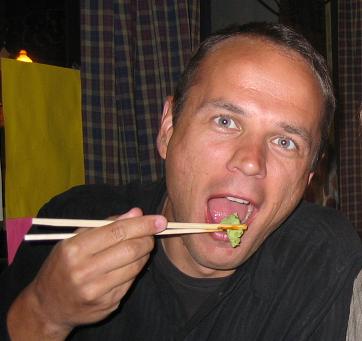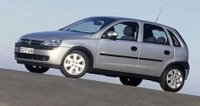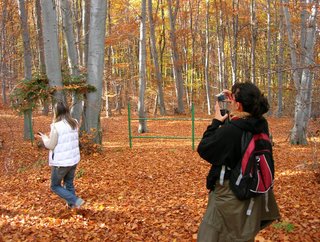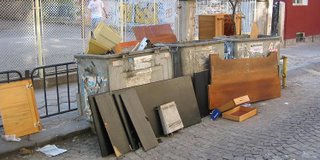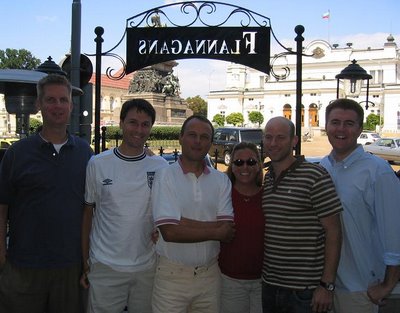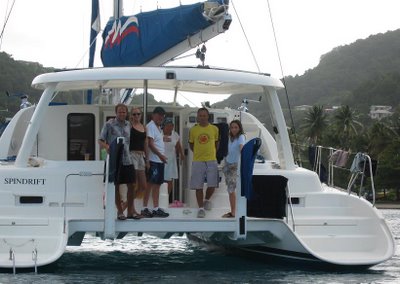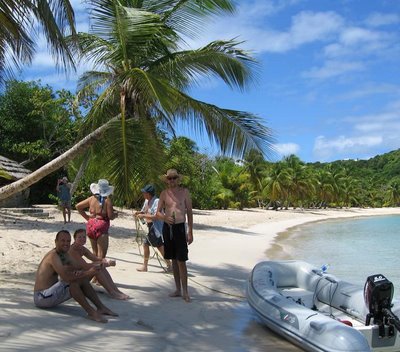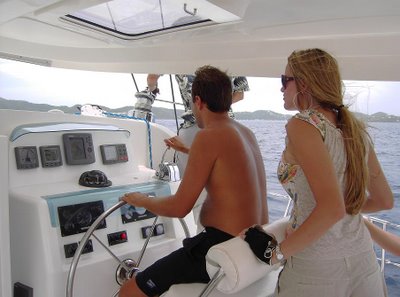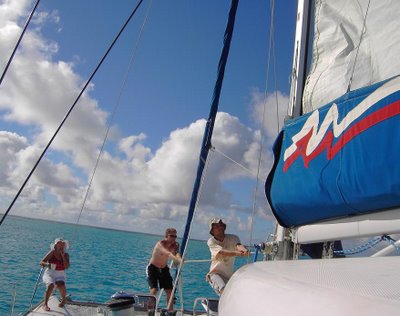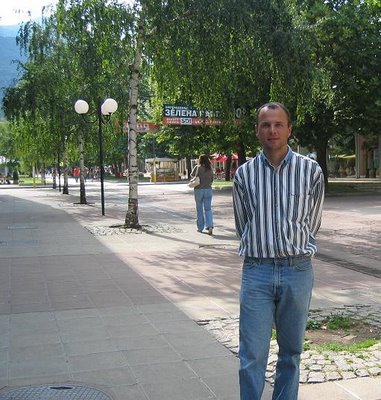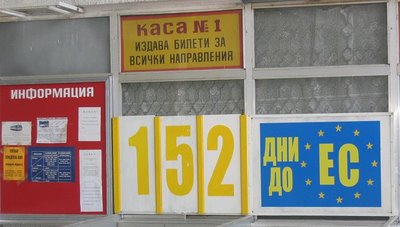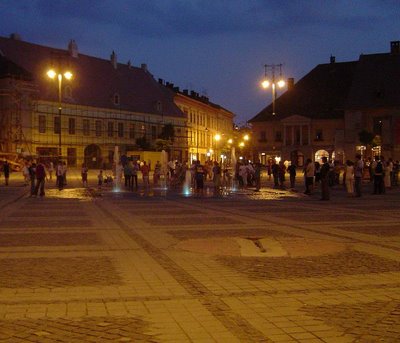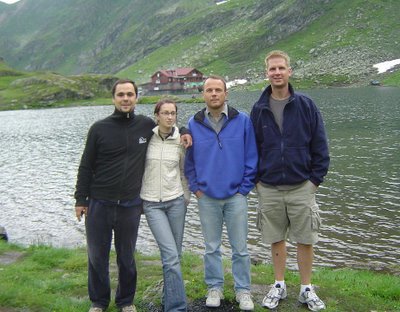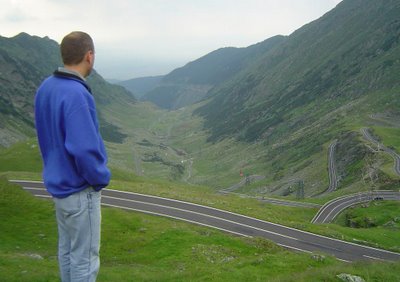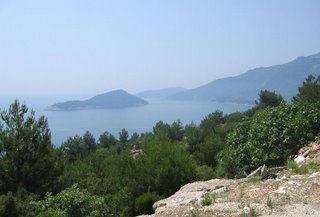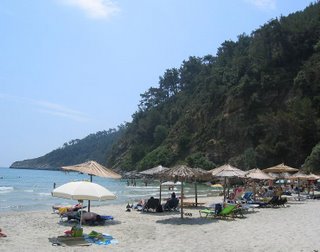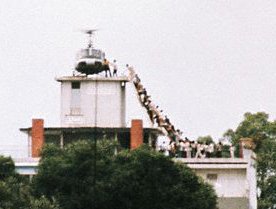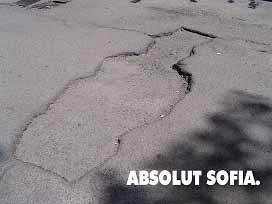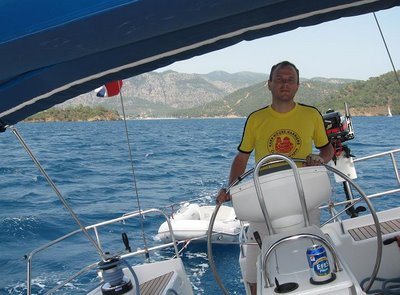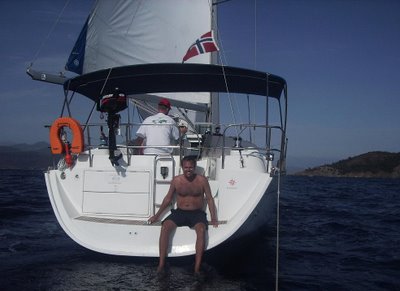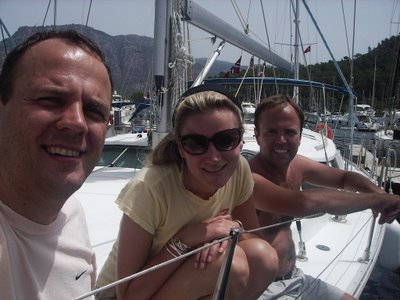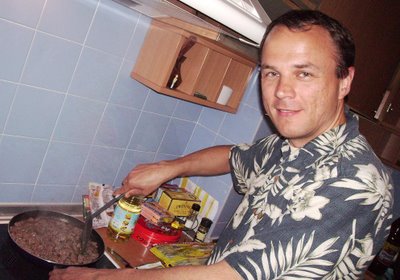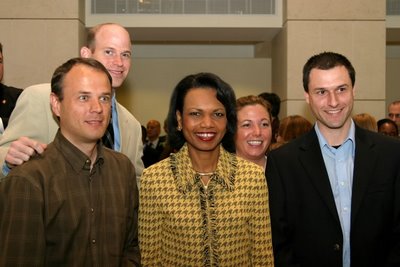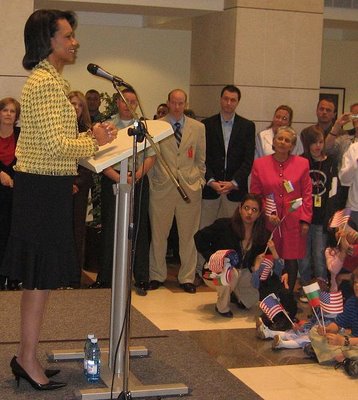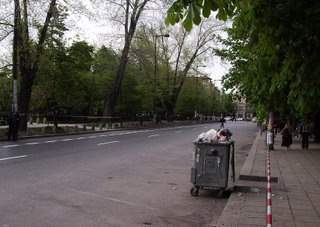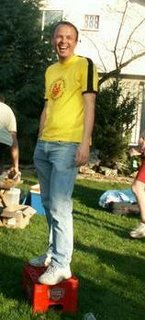Since our assignments are all done, several of my MBAEC colleagues and I decided to meet and celebrate in Istanbul (not Constantinople.)
1 Norm left Azerbaijan on Friday, as did Ryan and Mike (from Sofia—via a night train.) As I had a wedding to attend on Saturday, (an American coworker at Serdon) I took a bus on Sunday morning, and Paris—after some complications—met us on Monday, as he was there on business.
Day 1 – Sunday, October 1, 2006The bus ride was a pleasant enough, but long—10 hours! I opted to travel during the day, so I could see the Bulgarian and Turkish countryside pass by my window (plus I don’t sleep well in a sitting position.) It was reasonably enjoyable; I got to see a lot of Bulgaria that I’d never seen before including a major city, Haskovo, which I had previously never even heard of.
After being spoiled with the privileged of being (with) a diplomat the previous week, the experience at the border was tiresome. Mind you, not the inspection itself, which was cursory, but waiting as the buses and the luggage of passengers on those buses in front of us was thoroughly inspected. Apparently the customs officials scrutinize the cheap bus lines more often used by smugglers (of whatever) than the comparatively ritzy 40 leva “Metro Plus” bus line I was using.
2 The scenery changed considerably as soon as we entered Turkey. The arid hills were dotted with a different style of houses, and the skyline was punctuated with the minarets of mosques. However, more importantly—the road went from a pothole strewn 2-lane to a 6-lane expressway.
We rolled into the outskirts of Istanbul
3 around dusk and were dropped off in a maze-like, multi-story bus station. I tried to find my way out—to public transportation—but eventually gave up and paid a taxi 20 Euros (the same amount as the bus ticket from Bulgaria) to take me to the hostel in Sultanahmet, where we were staying. I looked for Ryan, Mike, and Norm, but didn’t see them; so headed out for a bite to eat, since I was famished from the bus ride. As it was after sundown during Ramadan, (or Ramazan as they call it in Turkish) there was a festive atmosphere as people were eating their first meal since breakfast.
Eventually I found my friends, and we went out to eat again—which was an adventure in and of itself! The first restaurant we tried didn’t sell beer because it was next to a mosque—which was a deal breaker for Mike—but it also didn’t have everything on the menu because the post-sundown rush of Ramadan had already cleaned them out. We settled on another one where the waiter assured us they had everything on the menu including “lavash” flat bread. When our food arrived there was no lavash, and they had substituted noodles for rice. Mike pointed this out to the waiter and even showed him on the menu that we were supposed to get rice (because the waiter said rice was extra.) After multiple trips back and forth, he admitted that these items were “finished.” Then—and this has now become our catchphrase for the journey—he said: “Yes, my friend, you are correct, but I am correct as well.”—classic!
Day 2 – Monday, October 2, 2006
Monday morning we were up bright and early for our Bosporus cruise. A minibus picked us up in front of our hotel and took us to a consolidation point—on the side of a busy highway—where we waited around and eventually got on another private bus that would take us to the boat, but first a side trip to the spice market (which we could have found on our own.) The boat trip was pricier and a bit nicer than the one Ben and I took 2 years ago
4, but it was basically the same thing: mainly showing the multi-million dollar houses on the Asian side. We noticed that nearly each hilltop (perhaps representing a neighborhood or wealthy individual) featured a soaring flagpole and an enormous Turkish flag—the size you would only see at an American car dealership.
The explanation was given in English, German, and Spanish; and each a little different because we’d be 5 minutes further along the shore when the language would change. I couldn’t be sure, but the woman who was doing the explanations in Spanish seemed to be talking about totally different things; too bad Bulgarian has pushed out the last remaining Spanish language skillz out of my head.
After the cruise, we got off our bus at Taksim Square in order to explore the modern part of Istanbul rather than being shuttled back to Sultanahmet. As we strolled down the famous pedestrian street, İstiklal Avenue, we stopped for a quick lunch at cheap but tasty Turkish cafeteria. At the end of İstiklal, we went down a street much like the “satellite TV street” that Ben and I walked up 2 years ago,
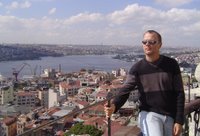
but—as Ryan noted—this was definitely “music street”; there were 100 times more stores selling musical instruments of all kinds plus sound reinforcement equipment than in all of Bulgaria—one would think there is a lot of live music in Istanbul, but we never found any. Halfway down the hill, we stopped to go up the Galata Tower for the panoramic view and the obligatory pictures.
That afternoon a Turkish girl, which Mike had met on a previous trip here, took us to a few leather goods stores because Mike wanted to buy a leather jacket. After visiting a few stores, trying on innumerable jackets, and—of course—haggling, the jacket was bought. As usual, I was bored, but started looking at jackets for myself, and found a really nice one I liked for 400 Lira, unfortunately I did not buy it—as you know, I am not an impulsive shopper. The stores were spacious, modern edifices, but soul-less; I imagine their predecessor was a chaotic, crowded marketplace like the Grand Bazaar or spice market—an unfortunate change.
Day 3 – Tuesday, October 3, 2006Tuesday, the occupancy of our hostel room decreased by 75% as Mike—the only one of us with a job—had to head out early to catch a flight back to Sofia and get back behind his desk that morning. The rest of us had our breakfast of one hard-boiled egg, one slice of tomato and cucumber, one olive, a piece of white cheese, and some bread. Thus fortified, we set out for another day of touristing. Ryan and Norm went to check out the Topkapı Palace, and I—because I had seen the palace on my previous trip—went to see Hagia Sofia (the vast Byzantine-era church turned mosque, then—in the last century—into a museum.) For comparison, I also checked out the Blue Mosque (Sultan Ahmed Mosque) next door; it is smaller, but notable for being the only mosque in Turkey with 6 minarets. After wandering around the old town for a while, I met up with Norm and Ryan again and had lunch. Then we hit the spice market for souvenirs—especially Turkish delight (of which Norm eventually bought 10 kilos for his friends and coworkers in Azerbaijan—they are a big fan of anything from Turkey.)

That evening we finally met up with Paris, who was staying near Taksim Square. For the second night in a row, we ate a seafood restaurant. Here I saw something I’ve never seen before: a large fish, encrusted in a thick layer of salt, baked in an oven. The waiter brings it to the table, chisels it out of the salt, de-bones it, and then servers everyone at the table (usually four.) It looks good; I’ll have to try that sometime.
Since Paris had a business meeting on the other side of town the next morning, and Ryan & I had to catch the bus back to Sofia at 9:00, we made a short night of it. It was great that we were able to reunite at the end of our assignment; we were five of the eleven 2005 Corps—a pretty good turn out, considering that three had finished early and were already back home.
Notes1 Berlin, Irving; Kennedy, Jimmy. “Istanbul (Not Constantinople).” 1929. (most recently covered by
They Might Be Giants.)
2 From what I experienced, the main benefit of using “Metro Plus” is its modern buses with toilets—which, however are used as storage space—and an iridescent-silver and blue haired “stewardess” who served us tea and snacks.
3 Spelled İstanbul in Turkish—yeah, even a capital “i” has to have a dot over it.
4 See
http://joel.froese.com/sb04.htm for the account of my previous trip to Istanbul.
All photographs in this post are courtesy of Norm.
 “Christmas” shopping
“Christmas” shopping



